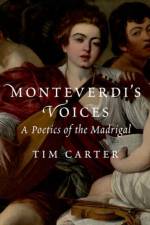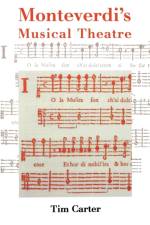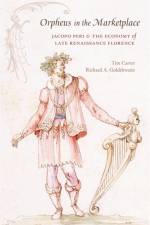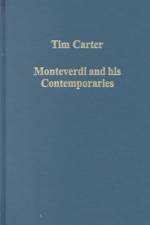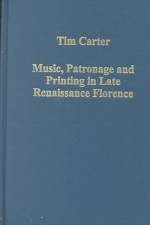- A Poetics of the Madrigal
av Tim Carter
987
"Ah, alas!" The "faithful shepherd" Mirtillo's woeful sigh of unrequited love, delivered with outrageous musical dissonances, has rung through the ages since the first publication of Claudio Monteverdi's madrigal "Cruda Amarilli" in 1605. But there is far more to the composer's nine books of madrigals than dissonant progressions--they are an integral part of the intellectual, artistic, and practical worlds of creation and performance in Italian musical and literary culture of the late sixteenth and early seventeenth centuries. While Monteverdi is also recognized for his operas and sacred works, it is no surprise that the madrigal dominated his output through his long career in Cremona, Mantua, and Venice. Author Tim Carter illustrates how the composer's wonderfully witty settings of Italian verse ran the gamut from compositions in the traditional polyphonic style for five unaccompanied voices to those in more modern idioms for one or more singers and instruments. Their poets included the major figures of the day--Torquato Tasso, Battista Guarini, and Giambattista Marino--as well as the classics, not least of all Petrarch, with texts that embraced all the current literary genres from lyric through epic to dramatic. Monteverdi also repeatedly asked and answered the fundamental question of any musical setting of poetry concerning the relationship between poetic and musical voice(s). Carter offers a more holistic perspective than has been adopted in the partial studies of Monteverdi's madrigals to date and moves far beyond conventional views of the composer and his work. He considers how Monteverdi engaged with poetry, with sound, and with the performers for whom he was writing. As Carter shows, Monteverdi was irascible, exasperating, and prone to error. Yet his astonishing musical mind was also inventive, playful, and capable of the most extraordinary wit--producing madrigals that continue to invite new approaches both to their study and to their performance.

